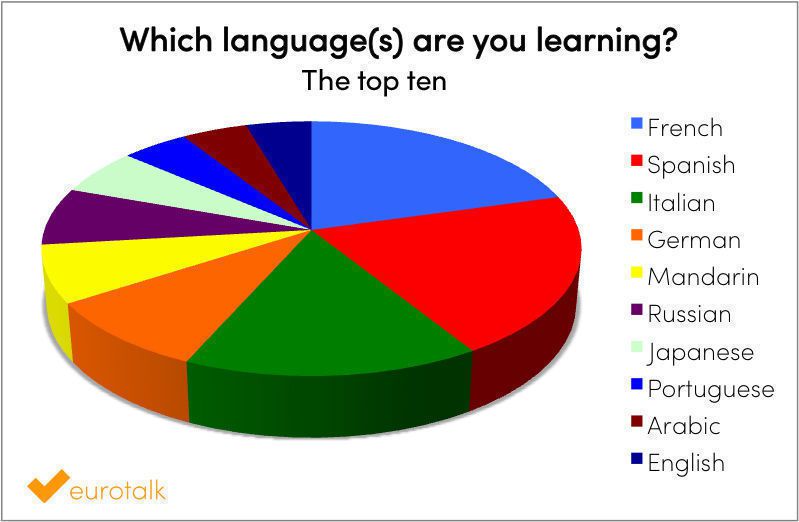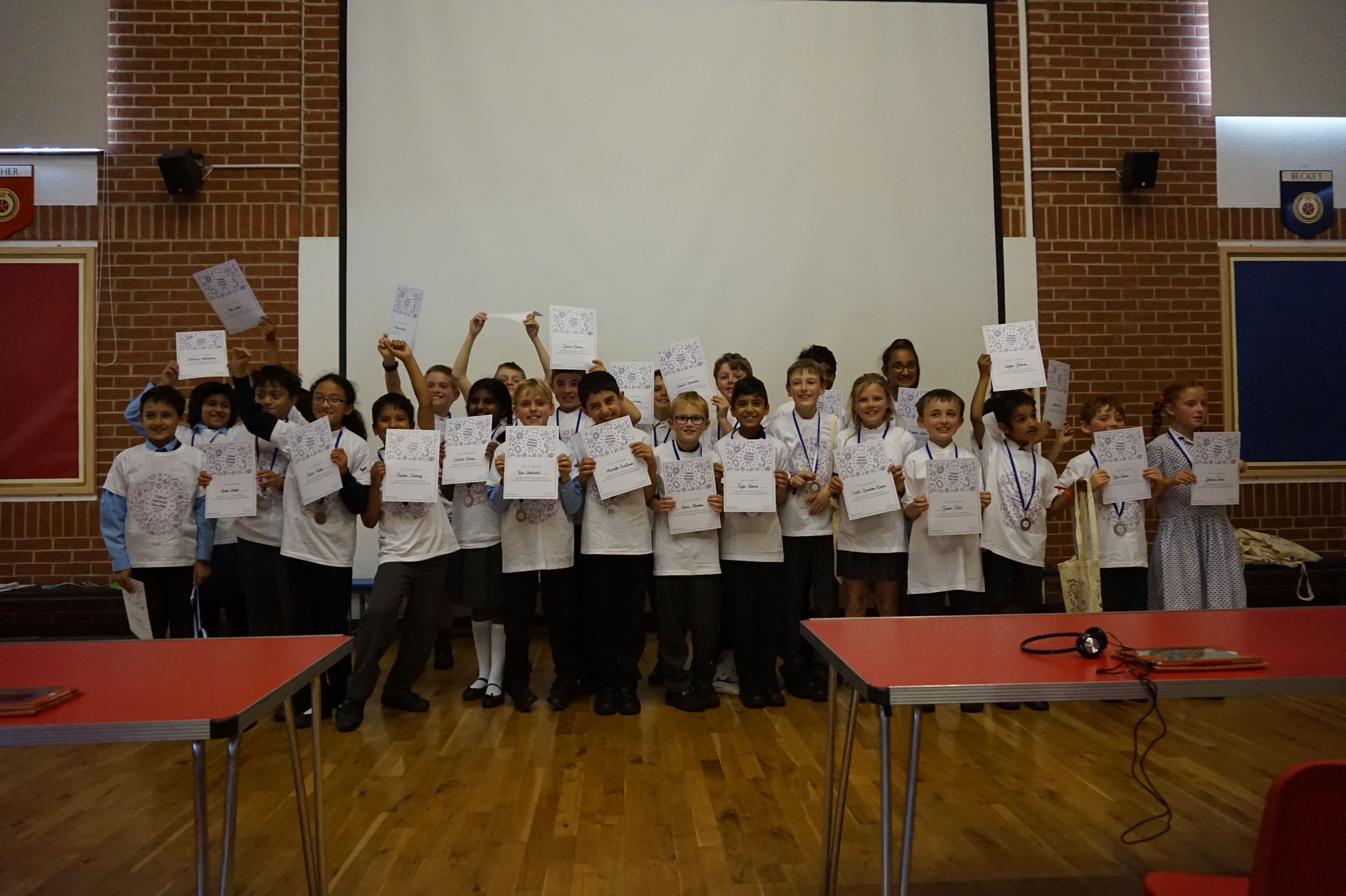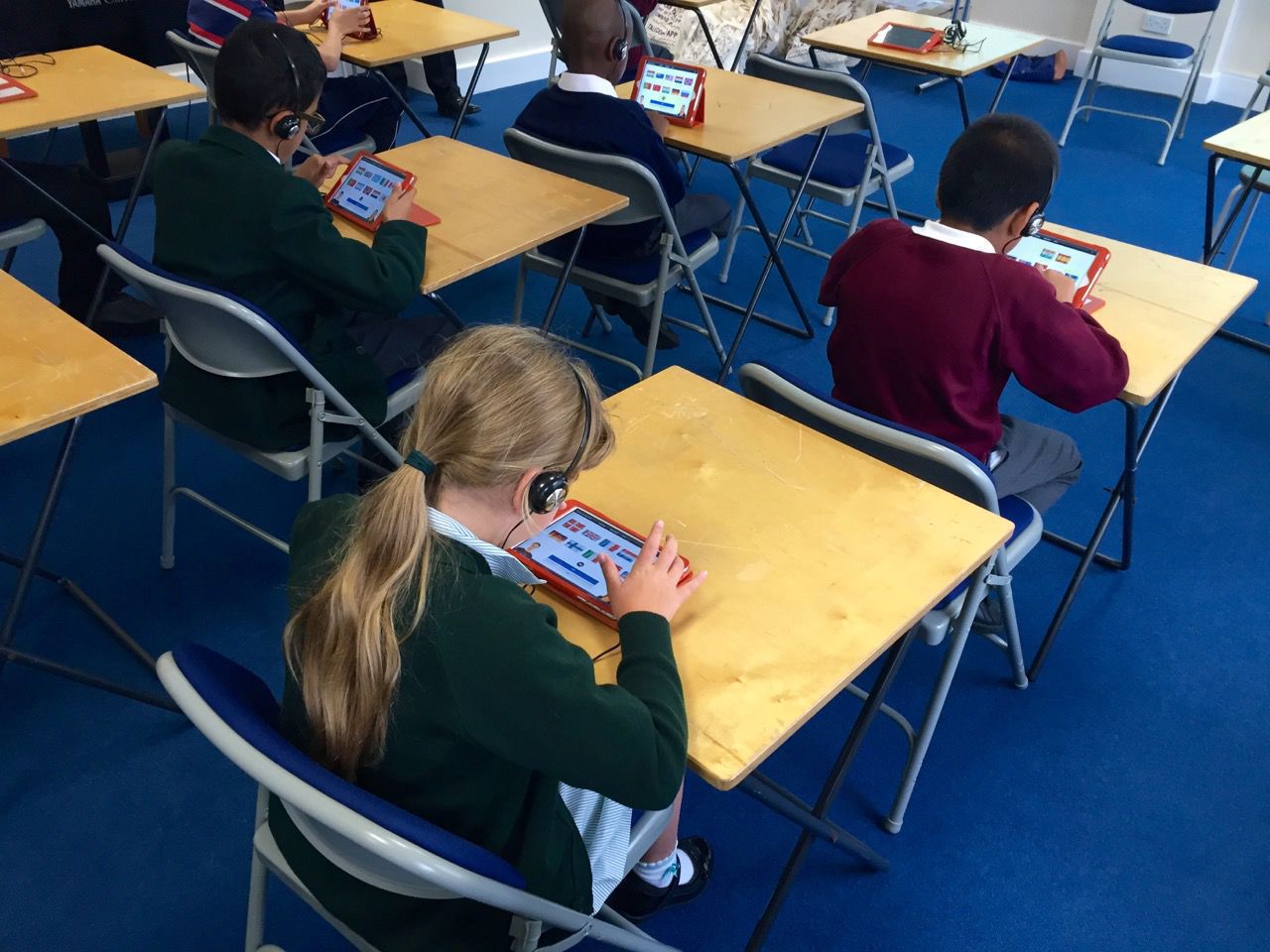Arabic: are you up for the challenge too?
After seeing how amazing our Junior Language Challenge semi-finalists were at learning Mandarin, we’ve set our 33 finalists the new challenge of learning… Arabic.
Over 250 million people speak Arabic, across 22 countries. There are a number of different dialects within Arabic, including Moroccan, Classical, Lebanese, Gulf and Egyptian. Modern Standard Arabic is understood across the Arab world, and is used widely across different publications.
Is Arabic as different to English as it looks?
There are several similarities between Arabic and English:
- The punctuation marks are used in the same way – however, in Arabic these can look very different; the question mark in Arabic is reversed, compared to the English way of writing a question mark.
- There are some Arabic words that have contributed to the English language, such as succar, which is ‘sugar’ in English.
The differences between English and Arabic make the language rather difficult to learn.
- Arabic letters look completely different to the English alphabet.
- These letters are also written right to left, instead of left to right. This means that the front of the book in Arabic would be considered the back in English.
- Sentence structures also differ to English, with the adjectives coming after the noun. For example, we would say the ‘blue car’, whereas in Arabic it would be ‘car blue’.
- Unlike English, Arabic only has 3 vowels and these have differentiations. Many words in Arabic start with a consonant followed by another consonant, and again like vowels, these have differentiations too. Another difference is that Arabic doesn’t have any capital letters; instead they use quotation marks to emphasise letters instead.
Although Arabic may seem like a difficult language to learn, it is one of the eight most spoken languages in the world. Hopefully with enough practice before the Junior Language Challenge, our finalists won’t be thinking ‘Ana La Afham’ (I don’t understand) or ‘Annajdah’ (help)! I am sure our finalists will be just as fabulous at Arabic, as they were with Portuguese and Mandarin. If you’re going to the Language Show on Friday 16th October, and you’d like to see how great our finalists are at learning Arabic, come and find us in room 3 (level 3).
And if you’d like to learn Arabic yourself, you can download our uTalk app to get started for free!
Alex
Learn Chinese? No problem for our Junior Language Challenge semi-finalists!
As a EuroTalk newbie, I had no idea what to expect when it came to the Junior Language Challenge. I have heard a lot of stories (all good, I promise) over the last couple of months on what to expect at the semi-finals. We did a few practice rounds here at the EuroTalk office and I thought we had all done pretty well at getting the hang of Chinese, considering how hard the body game was! However, after the first round at my first semi-final, I realised that we were actually all pretty awful.
For those of you who are also new to the Junior Language Challenge, it is an annual competition for children who are under 11 years old. It runs from March until October, where the final is held at Language Show Live, London Olympia. Over this period, the children participating learn three languages. This year we chose Portuguese, Chinese and Arabic, three very different and difficult languages to learn. However, the children did not appear to struggle at all; the scores were amazing across all the semi-finals, with children regularly scoring top marks in the games.
There was a lovely atmosphere at the semi-finals I visited, and both hosting schools were fantastic at making everyone feel welcome (as well as providing us EuroTalkers with a fabulous lunch). The children, teachers and the parents were clearly buzzing with excitement and nerves. Every child put 100% effort into the games, even in the rounds which they made clear were not their favourites!
Even though it’s a competition, it was clear to see there were no hard feelings between the children. All were delighted to receive a goodie bag and a medal, and were eager to find out the final language. The whole thing was organised brilliantly by our marketing manager Liz, and couldn’t have happened without the support of all the schools, pupils, parents and teachers involved; so we thank you all for this! You have also helped us to raise nearly £6,000 for onebillion, who aim to bring education to some of the world’s poorest countries by developing apps. These apps are in the children’s native language and help them to learn maths, English and how to read. This money will help to continue onebillion’s amazing work in Malawi and change the lives of so many children.
The JLC is far from over yet! With the final less than 3 weeks away, on October 16th, the children now have the tough job of learning Arabic for their third language. The 33 finalists will go head to head at London Olympia, for the title of Junior Language Challenge champion 2015, in what promises to be a nail-biting competition. The winner will be going on a family holiday to Africa and we wish everyone taking part in the final the best of luck!
Are you coming to Language Show Live this year? If so, please do come up to seminar room 3 on Friday morning to watch the JLC final – everyone’s welcome!
Alex
How do you choose which language to learn?
Everyone’s always talking about how useful it is to speak another language – and they’re right, for so many reasons. There’s lots of advice too on how to get started and how to stay motivated when it gets tough. But the first question any aspiring language learner should ask themselves is, ‘Which language do I want to learn?’
Sometimes this is easy, because you’re moving to another country, or you’ve met a new partner who speaks a particular language. Even if this means you end up learning a language most people would consider unusual, to you it has a purpose and that makes it anything but obscure.
But what if you’ve just decided you want to learn a language, because you’ve heard that people with a second language earn more, or that learning a language makes you cleverer, and don’t have a particular one in mind?
 At EuroTalk, we offer nearly 140 different world languages. It’s a pretty daunting selection to be greeted with when you’ve just Googled ‘I want to learn a language’ and stumbled on to our homepage, or downloaded the uTalk app. And that doesn’t even come close to the total number of languages spoken in the world. So how is anyone meant to choose one to learn? Do you just close your eyes and point at one?
At EuroTalk, we offer nearly 140 different world languages. It’s a pretty daunting selection to be greeted with when you’ve just Googled ‘I want to learn a language’ and stumbled on to our homepage, or downloaded the uTalk app. And that doesn’t even come close to the total number of languages spoken in the world. So how is anyone meant to choose one to learn? Do you just close your eyes and point at one?
Well no, we don’t recommend that approach; you could end up with something really fun that way, but at the same time, learning a random language just for the sake of it, when there’s very little chance you’ll ever get a chance to speak it, seems a shame. Half the fun of learning a language is getting to share it with other people.
So here are our recommended criteria for choosing a language:
Number of speakers
Generally, a language with more speakers is going to be more useful to you, because you’re going to have more opportunities to speak it. According to Ethnologue, the top five most spoken languages in the world are Chinese, Spanish, English, Hindi and Arabic, with a total of 2.4 billion speakers between them, so knowing one of these languages is going to guarantee you lots of people to talk to.
On the other hand, it depends on your reasons for wanting to learn a language. If it’s to make friends all over the world, one of these five languages will stand you in good stead. But if it’s to improve your employment prospects, bear in mind that you might face more competition if you’ve chosen a popular language. I studied Spanish at university, which is in great demand with employers. But so did lots of other students. We’ve got five people who speak Spanish at EuroTalk – two of them are native speakers (there are less than twenty of us in total, to put that in context) so it’s rare for me to be called on to use my language skills. Something like Portuguese or Japanese, which are still in the top ten in Ethnologue’s list, might offer fewer opportunities but when one comes along, you’re probably not going to face as many rivals for the job.
Where it’s spoken
Another important factor. Firstly, you don’t want to learn a language that’s spoken in a country you never intend to go to, or in which you’ve no interest. Secondly, some languages, like French, Arabic or English, are spoken in many different countries. So if you’re going travelling and want a language you’ll be able to use in more than one place, one of these will be more useful to you. But if travel’s not top of your agenda, this might not be such a big consideration.
Similarity to other languages
Most world languages are organised in families, which means they come from the same root as the other languages in that family. This means often, although you may only speak one language, you can probably at least make yourself understood in another. Hindi and Urdu, for example, are mutually intelligible, as are Czech and Slovak. If you know Spanish, you can make a reasonably decent attempt at Portuguese or Italian, and although you might make a few mistakes, chances are you’ll be understood. I’m not suggesting you should go around speaking the wrong language at people, but if you do make an honest slip-up, or just can’t think of the right word, you’ll probably be ok. I’m fairly sure I spoke quite a bit of Spanish when I was in Italy earlier this year, but everyone seemed to understand what I was getting at.
Some languages, though, don’t have any close neighbours, or indeed any neighbours at all. Basque, for example, is what’s known as a language isolate, as is Korean. This means they don’t belong to a family, but stand alone, so if you’ve chosen one of these languages, it’s worth remembering that it won’t help you with any others.
Your interests
Partly, this is to do with your travel interests. If you’ve a particular interest in Russia, for example, we’d recommend you learn Russian. But even if you’re not particularly interested in travelling, there are other things to consider. Are you a fan of opera? Maybe give Italian a go. Anime? Japanese. Star Trek? Klingon.
Or maybe you’ve got a particular interest in endangered languages, in which case you might want to learn Cornish or Sardinian, not necessarily for the wealth of communication opportunities it offers, but to help save a valuable world language from extinction.
Your commitment
You know yourself better than anyone. How motivated do you feel? Is this just a passing whim that you’re likely to give up the moment it gets difficult, or are you prepared to stick at it? The fact is, some languages are harder than others, and this is different for everyone, depending on your native language. For Europeans, Dutch is considered quite an easy language to learn, while Mandarin Chinese is very difficult. But someone living in Japan may find Chinese much easier to learn than any European language.
So if you’re living in Europe and intending to learn Mandarin, you’ll need to be pretty dedicated. And if you know you don’t have it in you, it might be better to try something else rather than face disappointment when it doesn’t work out. Nobody’s bad at all languages – you just need to find the right one for you.
If you’re still undecided, and in need of some inspiration, take our quiz – it’s not at all scientific, but might give you some ideas!
Or even better, why not try a few out? You can do this for free on our website, or by downloading uTalk for iOS.
If you have any other tips or suggestions for readers trying to choose a language, please share them in the comments.
Liz
Which language are you learning? The results!
We had a great response to our recent language learning survey; thank you to everyone who took the time to complete it. First things first: we’re delighted to announce that the winner of the iPad mini prize draw is Konstantia Sakellariou. Congratulations, Konstantia – your iPad is on its way!
We wanted also to share a few of our findings with you. Some of the results from the survey were as we expected, others were quite surprising. Here are just a few of the things you had to tell us. Thanks again for all your thoughtful responses, we’ll put them to good use.
Which language(s) are you learning (or would like to learn)?
The first question was pretty straightforward. A couple of people ticked every language on offer (over 100) – now that’s what we call ambition! – but most chose between 1 and 5. Here are the top ten most popular languages:  Other popular choices included Greek, Swedish, Dutch, Brazilian Portuguese, Norwegian, Irish, Polish and Icelandic. We also got some requests for languages we don’t yet offer, like Guernésiais and Twi – we’ll do our best to add those languages to our list, so watch this space!
Other popular choices included Greek, Swedish, Dutch, Brazilian Portuguese, Norwegian, Irish, Polish and Icelandic. We also got some requests for languages we don’t yet offer, like Guernésiais and Twi – we’ll do our best to add those languages to our list, so watch this space!
Why are you learning a language?
Next, we wanted to know why you’re learning a language. Nearly half of the respondents chose travel as a reason, and almost as many said they were learning a language just for fun. 36% of respondents said it was for family reasons or for a relationship, and 27% for work. The results were quite evenly split though, showing that there’s no one overwhelming reason – everyone has their own motivation.  Among the other reasons, we had a range of answers, including an interest in the culture of the language, personal challenge and wanting to follow literature, film and music in other languages. Many people are living in another country, which was their main motivation for learning the local language. And one person said that their heart asked for the knowledge, which we loved 🙂
Among the other reasons, we had a range of answers, including an interest in the culture of the language, personal challenge and wanting to follow literature, film and music in other languages. Many people are living in another country, which was their main motivation for learning the local language. And one person said that their heart asked for the knowledge, which we loved 🙂
What prevents you from learning a language?
We were also interested to know what stops people from learning a language, so we asked you to rate the following reasons out of 5. The most common barrier to learning is a lack of time, followed by not having found the right method, and then the cost involved.  Incidentally, if you’re facing any of these barriers, you may like to check out our recent posts, on finding time to learn a language and learning on a budget. And if you’re looking for resources, did you know you can try out the EuroTalk learning method for free? Either visit our website, or download our free app, uTalk for iOS, to give it a go. We believe learning a language should be fun, because our research shows we learn much better if we’re enjoying ourselves, and this in turn makes it a lot easier to overcome the obstacles that get in the way. See what you think! Other answers included not having an opportunity to use the language, a lack of motivation and difficulty finding resources for the particular language they wanted to learn (we may be able to help there – we’ve got 136 languages and counting…).
Incidentally, if you’re facing any of these barriers, you may like to check out our recent posts, on finding time to learn a language and learning on a budget. And if you’re looking for resources, did you know you can try out the EuroTalk learning method for free? Either visit our website, or download our free app, uTalk for iOS, to give it a go. We believe learning a language should be fun, because our research shows we learn much better if we’re enjoying ourselves, and this in turn makes it a lot easier to overcome the obstacles that get in the way. See what you think! Other answers included not having an opportunity to use the language, a lack of motivation and difficulty finding resources for the particular language they wanted to learn (we may be able to help there – we’ve got 136 languages and counting…).
How have you used your language when travelling?
Finally, we asked how knowing another language has been useful when you’re travelling. There was no clear winner here, which just goes to show knowing a language is always useful! But the top response was that it gives you the ability to talk to locals in their own language; many people added that they felt more welcome as a result and that it gave them independence so they could make the most of their trip. There were lots of practical reasons too, with getting around and eating out narrowly beating shopping in the poll. If you missed out on the survey this time, don’t worry – we’re planning another one soon, so keep an eye on the blog (you can subscribe by email above to get the latest updates), or follow us on Facebook or Twitter. And if you didn’t answer this survey but would still like to have your say on any of the questions, you’re very welcome to email us or add your thoughts in the comments below.
If you missed out on the survey this time, don’t worry – we’re planning another one soon, so keep an eye on the blog (you can subscribe by email above to get the latest updates), or follow us on Facebook or Twitter. And if you didn’t answer this survey but would still like to have your say on any of the questions, you’re very welcome to email us or add your thoughts in the comments below.
Liz
Data above based on 877 survey responses.
Goal! around the world [Infographic]
Sometimes one word is all you need… With the World Cup getting underway today, here’s how each national team says that all-important word, ‘goal’.
You can find this and lots more in our language learning app, uTalk – available to download and start learning right now from the App Store. So whether you’re watching the football at home or away, you’ll always be prepared.
(There are lots of non-football related words in there too, for those of us with other interests!)
Please do share the infographic with friends and tell us how you’ll be shouting ‘Goal!’ this World Cup 🙂
Embed This Image On Your Site (copy code below):





